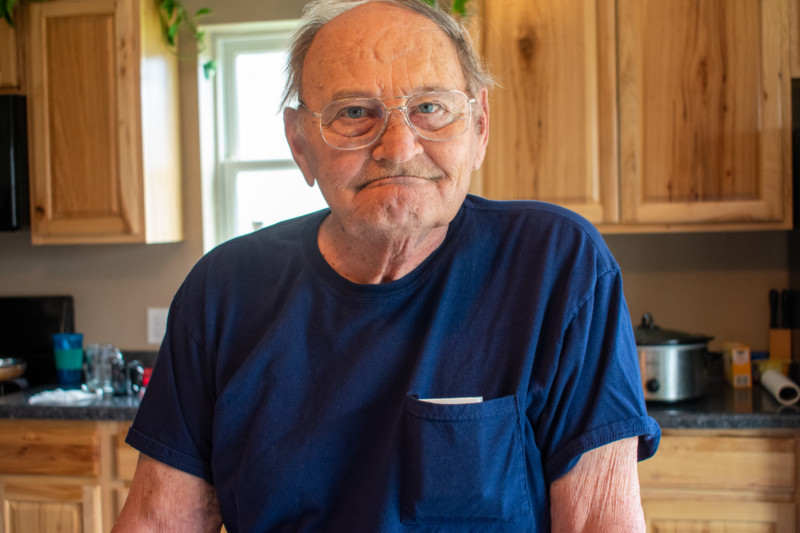
Three years ago last month my dad was diagnosed with stage 4 prostate cancer. It was very advanced already at that time he had over a dozen bone mets. My dad was 72, almost 73…not young enough to where cancer can be a total surprise, really in anyone. Still, up to that point he had no real health issues. He was physically active for his age, living on a small farm, doing yard work, etc. So even though in hindsight maybe it shouldn’t have been, it was still a shock at first.
Now, 3 years in, it’s almost hard to remember what things were like pre-diagnosis. It’s been a long three years in a lot of ways, but we’ve found ways through. I thought sharing some of my experience may be helpful to others who are earlier on in this journey.
I don’t often use the term ‘caregiver’, I suppose I still resist that label because it makes me think of nursing care, or similar. When attending appointments with my dad, particularly with places that do COVID screening at the entrace, I’m sometimes asked if I’m his caregiver. I’ve gone to 99% of his appointments since this all started. I know his medications better than he does. When it comes to doctor’s appointments, I’ve been his primary support person. So yes, I am his caregiver in that sense. He’s still pretty independent in his day to day life, though. I know some people associate the word caregiver with doing things like bathing someone or similar. However, that isn’t a requirement to be a caregiver.
What is a cancer caregiver?
A cancer caregiver is the primary person who supports a person through cancer treatments or care. This is usually a partner or family member. If you will be the person attending a majority of your family member’s cancer-related appointments with them, you’re their caregiver.
What New Cancer Caregivers Should Know
1. It gets easier…in certain ways. In others, you gain tolerance. Diagnosis is often a shock. In our case, I felt like there was a shock and a grieving process with the diagnosis itself. Because my dad had advanced stage 4 cancer at the time of diagnosis, we knew this was a terminal diagnosis and that came with it’s own shock and grieving process.
I call it a grieving process because I noticed similar emotional stages like you see in grief. Denial, anger, bargaining, depression, acceptance. Early on, it was hard to even say the word ‘cancer’ out loud. Early on, I found myself not wanting the ‘word to get out’ because I hadn’t accepted it myself yet, and it was SO painful to talk about. About a month after his diagnosis, I had a somewhat distant family friend run into me in the grocery store. I didn’t think anything of stopping to say ‘hi’ at first, and then she asked ‘so…..how’s your dad doing?” in that tone that told me she had heard about his diagnosis. I instantly had a lump in my throat. I don’t even remember exactly what I said to her but it was something like “Oh, he’s managing okay.” and then rushed to change the topic to some random thing because I was desperate to not linger on that topic. I didn’t want to break down in the cereal aisle. Early on, the topic of cancer made me feel emotionally raw anytime it got brought up. That was really tough. After a few months, it got to where it became more ‘normal’ and my emotions weren’t so fresh all the time.
Now, I sometimes feel like people are afraid of bringing it up even though it doesn’t bother me to talk about it most of the time these days. There are still other social situations that are challenging to navigate. Perhaps the most common one being this example. The “how is your dad doing?” question is still challenging! Just for very different reasons, these days. It doesn’t make me emotional, but I often struggle with knowing how to answer this question because I don’t know what perspective they’re asking from. Are they asking how is he doing in general, or how is he doing ‘all things considered’?
What “okay” or “good” or any other answer to “how’s he doing?” really means, is going to depend on if someone understands cancer or not. A “good” day for my dad now is not at all the same as what a ‘good’ day was four years ago, for him. With some people, if I were to say he’s “doing pretty well” they might think he was really doing GOOD and then if they see him having pain or struggling to walk very far they might think “What? I thought you were doing well?” For others, they may be more familiar with cancer and will understand that my dad’s “pretty good” is not a healthy person’s “pretty good”.
Of course, I still get emotional about it all sometimes. In my dad’s case, he won’t “get better”, unfortunately. So it’s been a long journey of slow decline, with some unexpected curveballs (both unexpected good and unexpected bad) along the way. It’s never easy, and there is a stress, or a worry, or a sadness, or a grief, some combination of all of those? Whatever it is, there is some kind of an emotional weight that I live with now 24/7/365. But I won’t cry if some well-meaning person asks me how my dad’s doing at the grocery store! And that’s a relief, to not walk around that vulnerable all the time.
2. It’ll shake up your family, in a variety of ways you may not expect. When my dad was first getting set up to do radiation at a cancer center, they gave us some information about some group counseling sessions that they offer at the cancer center. They have different ones, some for family members who have lost their loved one. Some for caregivers to support other caregivers. Some for patients with a terminal diagnosis. I forget what all, but they had a variety of different ones, all of which seemed like logical groupings to me…except one that was labeled something like “Cancer and family: how cancer changes families”. At the time I thought…an entire counseling session just to talk about how cancer changes your family? That seemed odd to me.
Unfortunately, it wasn’t much longer before I started to see that my own family was changing. I won’t go into that too much as it’s personal, of course. I will say that cancer impacts everyone who cares about the person with cancer, and everyone has different ways of coping. Sometimes the way different family member’s cope with the diagnosis will conflict with each other, or one person may be upset with how another is coping, etc. Some people may come around the person more often, and others will distance themselves.
Of those who remain in close contact, some people may have different ideas for how to best support the person with cancer. Some may want to be a very “involved” caregiver, and start helping the person make decisions such as encouraging them to try a certain treatment, or to reject a certain treatment. If the patient is given options between things like radiation, chemo, surgery, or different medications, some family members may have very strong ideas about which treatment course is ‘best’ and may really want the patient to follow their recommendations. Other people may feel that the best way to support the person is to try to not influence their decision-making, and instead to just support what that person decides on their own. Others in the family may have different ideas for how the person should be cared for or supported.
It extends beyond traditional medicine options sometimes, too. A lot of people with cancer hear from people who encourage them to do things like diet and exercise, supplements, or other natural or alternative medication options. Some may encourage the patient to become more religious or spiritual, to try yoga or mediation, to read certain books, etc. In the cases where doctor’s are saying someone is terminal, that can also cause conflict if some family members want to try to accept that the person will die, while others want to hope for a miracle or similar. I’m sure there are others that I’m forgetting, too. My larger point is that people have a lot of opinions and believes about how to best treat cancer, how to cope with diagnosis and treatment, and also different ideas about how involved the family should be in making medical decisions. This can cause really strong feelings within the family.
3. You won’t remember everything. Get a planner or calendar. Early on, you may think you won’t forget appointments, medication changes or other details. I thought the same thing too, early on. Oh, this is important, I’ll definitely remember that, no problem! Except, the amount of appointments, medications, medication changes, dose size or frequency changes really adds up quickly. I don’t think most people will be able to keep it all in their head accurately. Buy a planner or a calendar for appointments, and keep some sort of record (a note in your phone, or a written page in a journal?) listing current medications, doses and frequency. Depending on the type of cancer your relative has, you may want to keep track of other stats, such as certain blood test results. We also have kept track of various phone numbers for different doctors and specialists, his pharmacy, etc.
4. Prepare to advocate. While my dad is older, he is completely sound of mind. I didn’t really expect to need to speak for him. However, we’ve found that some doctors or others in the medical field do seem to “hear us” better if I am the one speaking rather than my dad. It’s unfortunate, but ageism and ableism are very real things, even within the medical field. I still have him speak first, but if they didn’t seem to respect what he said, I repeat his opinions myself to help ‘defend’ my dad’s decisions.
5. You’re allowed to be human still. If you are the primary caregiver, it’s easy to let yourself get really swept up in caregiving. It’s easy to slip into a mindset of seeing yourself as having to do everything, be everything for the person you’re supporting. While caregiving is really important work, caregivers still have a lot of needs themselves. As much as we may wish we could, I don’t think anyone is capable of truly being fully altruistic and just giving up their life for another. We need to have some time to ourselves, to focus on our own needs and some of our own wants. Caregiver burnout is a common problem, and a major way of combatting it is by making sure that you are taking care of yourself, too.
6. You may have to firmly set boundaries for yourself with the individual and others. Somewhat related to the point above, you need to still take care of yourself, too. This may require you to set clear and firm boundaries with the patient and/or with others. Sometimes a person with cancer may expect too much of their caregiver, and that would be the situation where you will need to set boundaries with the individual. In other cases, other’s close to the patient may expect too much of you. Maybe they recognize that you are the primary caregiver, so they expect you to do almost everything for that person. If you’re expected to (or asked to) do more than you can reasonably give, you’ll have to set clear boundaries for your own wellbeing.
7. A lot of people won’t get it. People generally understand that cancer is hard, and caregiving is hard. Most people who haven’t had someone close to them with cancer before, won’t really get it, though. There’s definitely a noticeable difference in talking about cancer with people who have had experiences with it, vs those who haven’t. That’s not at all to say that people without experience don’t care. It’s just that they don’t have the experience to be able to relate, and will need a lot more things to be explained to them to come closer to understanding. As one example, now that my dad is 3 years out from his initial diagnosis, some people have started to be confused about if he was ‘cured’ or not. Some people seem to assume that if you have cancer and are still a live a couple of years later, that must mean your cancer went into remission or was cured. . Or, among those who understand that it is still a terminal diagnosis, some seem to think that he’s probably been doing “well” (in the sense of a healthy person doing well) seems how he’s lived this long. My theory is that movies or other stories about “living like you are dying” are part of the confusion. I think when some people imagine someone being diagnosed with a terminal illness, and then living 3 more years, they assume that person has been “making the most” of those 3 years in terms of doing things like taking vacations or engaging with their favorite hobbies and so on. Unfortunately, cancer treatments are often really taxing on the body, as is the disease itself. So even when people live many years past a diagnosis, they are usually in treatment all or almost all of that time, and they just aren’t up to doing a lot of things that they may have enjoyed previously. Of course “extra” time is a WONDERFUL gift, I don’t mean to discount that at all. I am incredibly grateful, as is my whole family. Despite that happiness and gratitude, it’s still true that it’s been a hard few years and it’s clear that many people don’t really “get” what years of living with cancer and/or years of going through cancer treatments is like for people.
Being A Cancer Caregiver During COVID
I wanted to briefly cover how COVID impacts cancer caregiving. Cancer patients are usually seen as high-risk with COVID, which can impact how isolated people with cancer and their caregivers may be right now. This is challenging socially. There may also be differences of opinion in how the person with cancer, and those around them, handle trying to prevent COVID. Of course, any of these things can just add to the stress of the whole situation.
COVID can also impact caregiving in terms of supporting the person during their appointments. Doctor’s offices are usually one of the areas that are most strict about COVID protocols, so some may have policies that patients can’t have support people attend with them.
Our experience from the beginning of the pandemic til now, has been that most places will make exceptions when they know that someone has cancer. Many of the doctors that my dad visits have official policies that say adults can’t have anyone attend their appointments with them. Some admit to making exceptions for disabled adults, others don’t mention that exception. So far, almost everywhere my dad has needed to go, has allowed me to go with him after we explain that he has cancer. Many ask if I am his caregiver, and some ask if he is disabled. Others say “Does he need your help?” or similar. The only place that we’ve found did not allow me to attend his appointment with him, was a hospital where he was having a procedure done. I didn’t push too hard to try to attend, so they may have relented if I had really pushed. However, seems how he as just having a procedure done and wasn’t discussing his condition, medication, etc we felt that it was fine for him to attend that alone while I was in the parking lot.
Anytime that you feel that your family member needs your support at an appointment, I’d advocate for trying to attend with them. This includes situations where they need your practical help, such as remembering what was said at appointments, or remembering what questions to ask the doctor, remembering medication changes, as well as emotional support needs. If you may not be of practical help at an appointment, but you know your family member may be less anxious if you attend, that is still needing your support. I’m always respectful when talking to people about attending with my dad. I sometimes even outright say that I understand that COVID protocols are put in place to try to protect others and that is important to me too, but that I still think my dad needs me to attend. We haven’t had much pushback, most people will understand that cancer patients need support in a lot of situations.
Cancer Caregiver Guilt
I also wanted to touch on caregiver guilt, as I think it’s a particularly common struggle. When you are a caregiver for someone it’s because you want to do what you can to help them on their cancer journey, of course. Sometimes that desire is so big, that we feel bad anytime we can’t “help” enough, or we can’t “fix” a situation, or we have to take care of ourselves, even. On cancer caregiver forums I’ve seen many posts where spouses of cancer patients say they feel terrible calling and asking someone else to come sit with their bedridden family member while they get groceries or run other essential errands, even! That type of thing isn’t healthy. It’s a really nice thing to want to do everything you can for someone, but try not to let yourself feel guilty for having your own needs, or not being able to “do it all” or “fix it all”. Try not to be afraid to ask others for help when you need it, too.
Cancer Caregiver Support Groups
Cancer caregiver’s need support, too. If you find yourself needing support or others who understand, ask at your loved-one’s oncology office if they know of cancer caregiver support groups. Most likely, they will know of some you can join locally.
Or if online support may be enough, check out online support groups, like /r/CancerCaregivers on Reddit, or Facebook groups. You can also try looking up the specific type of cancer that your loved one has. Sometimes there’s additional benefit (and further understanding) when speaking to people who are familiar with the specific type of cancer that your loved one is dealing with.
Hi there! I am Emily Evert, the owner of Emily Reviews. I am 28 and live in a small town in Michigan with my boyfriend Ryan and our two pugs. I have a large family and I adore my nieces and nephews. I love reading memoirs, and learning about child development and psychology. I love watching The Game of Thrones, Teen Mom, Sister Wives and Veep. I like listening to Jason Isbell, John Prine, and other alt-country or Americana music. I created Emily Reviews as a creative outlet to share my life and the products that I love with others.
This post currently has 9 responses.
-
-
Emily, thank you so much for sharing such a personal, honest, and helpful post! My parents both had diagnoses this year–only a couple of months after their house burned down!–so we have been going through some of what you talk about here. To be honest, though, we are still navigating so much of it, and everything feels awkward and clumsy and new and weird and sometimes really scary. I’m not exactly the caregiver for either of my folks, but I try to be very available so that I can fill that role if they need me. Your words are helpful to me to know that what we have experienced so far is ‘normal’ (as normal as anything cancer-related can be). Thanks so much, and I hope your dad is having a Very Good Day TODAY–in as many ways as possible!
-
Thank you for sharing your personal and emotional journey. We all will go through experiences like this at some point and knowing that it is okay to grieve and feel overwhelmed but that we can get better at being there for our loved ones is helpful.
-
Such a great post. I have not had to be a caregiver for someone with cancer but I know that has to be rough. I just lost a dear friend to cancer a week ago and I was/am devastated. Such a cruel and horrible disease. Thank you for sharing your story and advice.
-
First off, I’m so sorry to hear about your dad. It sounds like you have learned a lot. You have provided great information. Thank you!
-
This is an article everyone should read. Cancer can happen to anyone. Thank you for sharing your experience caring for your dad.
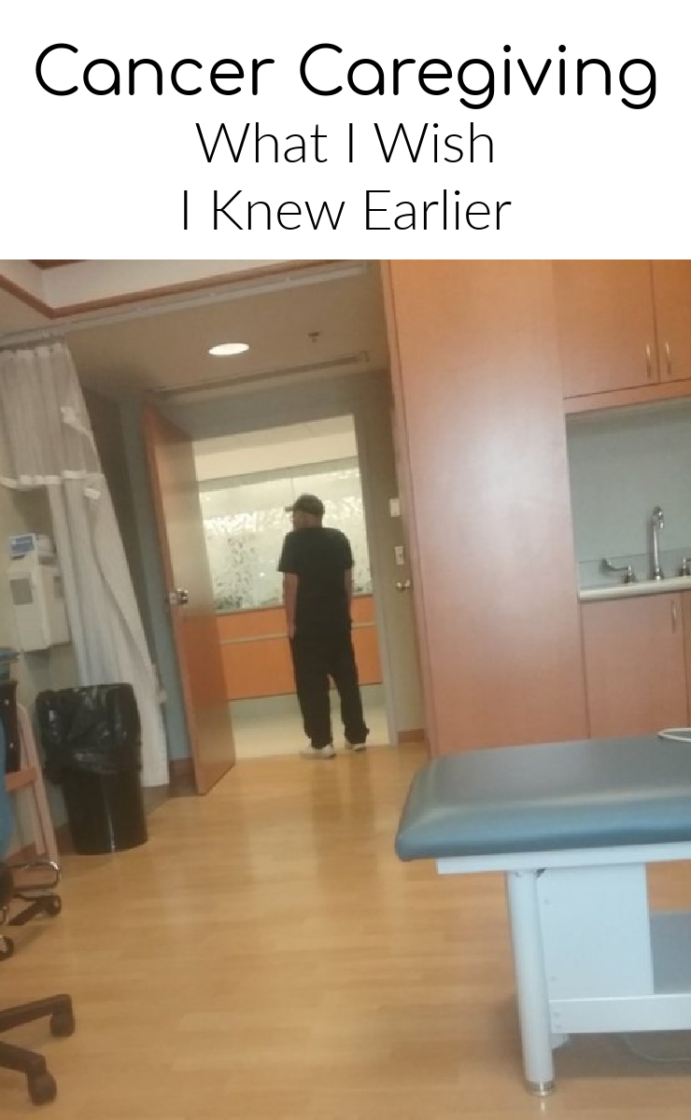
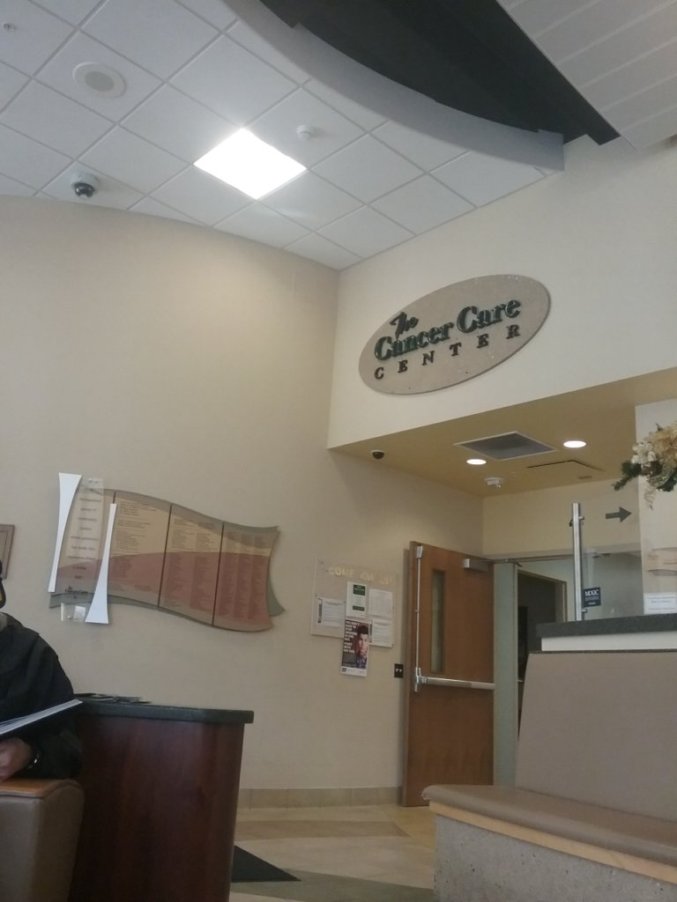


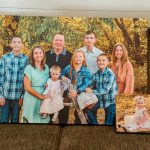
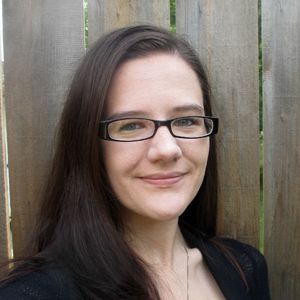











I was a caregiver for my sister in law during her caner diagnosis. I felt so alone…. like no one else in the world knew what I was going thru. I hurt for her, I hurt for my coming loss… I just hurt.
Now when someone I know becomes a caregiver for a short illness, or something long term. If there are is enough to support the sick person… I focus on the caregiver. They need support too so they are not alone.